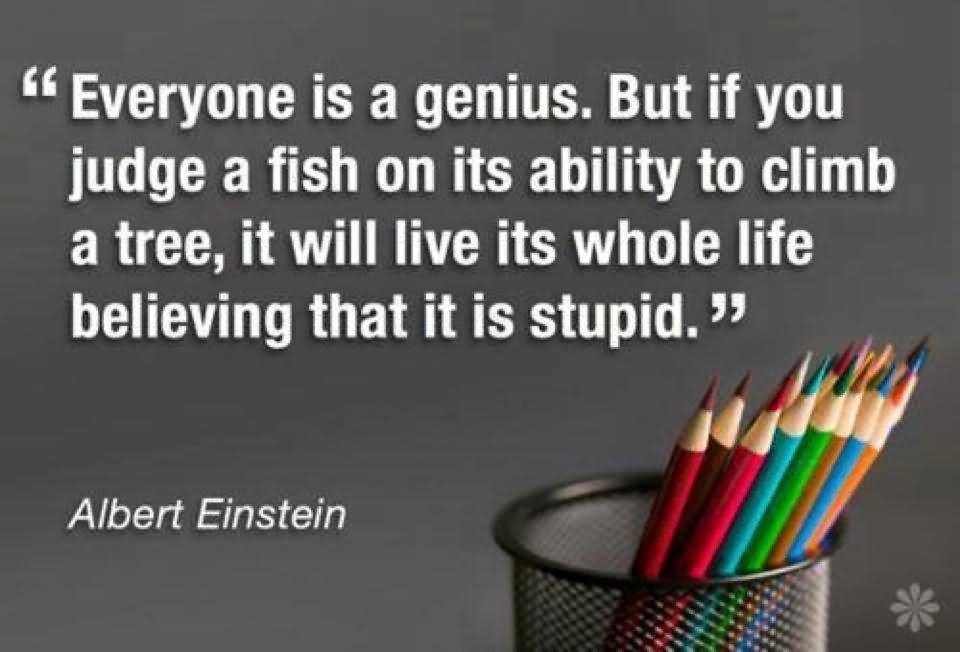Assessment Pre-Thoughts
In my #TeachAg journey, no subject makes me more uncomfortable than assessment. I struggle to think of a way that we can asses what students know in an objective way, while keeping in mind individual talents and abilities and needs, while still grading according to district policy. I know that pre-assessment is a valuable part of the process because it establishes a baseline. Therefore, I am writing this part of my blog before I start my readings in order to capture beginning thoughts. Overall, when I hear someone say assessment, I think of the two pictures below. |
| Sadly, I feel comedian Daniel Tosh's comments are all to common in our school system. |
 |
| Although it is commonly used quote, it's idea is very important to keep in mind as we fight the idea presented in the first photo. |
Reading Reflections
I know that assessment does not directly equal grades, but that is the area that concerns me the most. After reading, here are a few points that stick out to me that I feel may help address my concern above:
- Remember the difference between summative and formative assessments. Summative assessments are our traditional tests and quizzes, often cumulative, and at the end of a topic. They can also include final projects, and. are the basis for grades. Formative assessments are where students get input and feedback from others. We can do that may different ways and on a constant basis. Make sure to include both ways. Is there a way to incorporate grades into formative assessments, or is it simply a way to build scaffolding around a students learning experience to help them perform when grades are at stake?
- "Measuring is the third part in a five part process".
- Set outcomes
- Identify where outcomes are addressed
- Measure
- Revise
- Re-measure
- Good test questions inspire though on the subject, not just regurgitation of a fact. Use bloom's taxonomy!
- Rubrics are a tool to keep assignment grading objective, and expectations clear to students.
- On my note of "bad test takers": Vary your assessment strategies and allow students to show you all of their skills. When it comes to assessing exceptional students, remember to view the IEP to see where accommodation or modification my be necessary. Our biggest challenge here is how do you weigh the grades of students who have received alternative assessments? A 100% grade on one does not equal a 100% on the other.
- "High-quality grading and reporting systems distinguish three types of learning criteria related to standards":
- Product Criteria
- Process Criteria
- Progress Criteria
- Grades should never be assigned as a "feel good" move. Always keep things objective. If students struggle, re-evaluate your learning objectives for them.
I feel like the more I know, the more questions I have. Nevertheless, here is my final thought for the blog. Remember that students will inevitably get good and bad grades in your class no matter how you write questions, vary instruction and assessment strategies, and write objectives. It is our job to give each student the best opportunity for success (they can take it or leave it) and then keep grades as objective as possible.
Great points Nate! We need to make sure we are providing students different ways to showcase their knowledge. I love the quote from Einstein as well.
ReplyDeleteNate, I totally agree with you. Assessment can be scary. I want my students to learn but I don't want to just pass them. I know when we get into student teaching, hopefully we will learn other ways to get around this with practice.
ReplyDelete